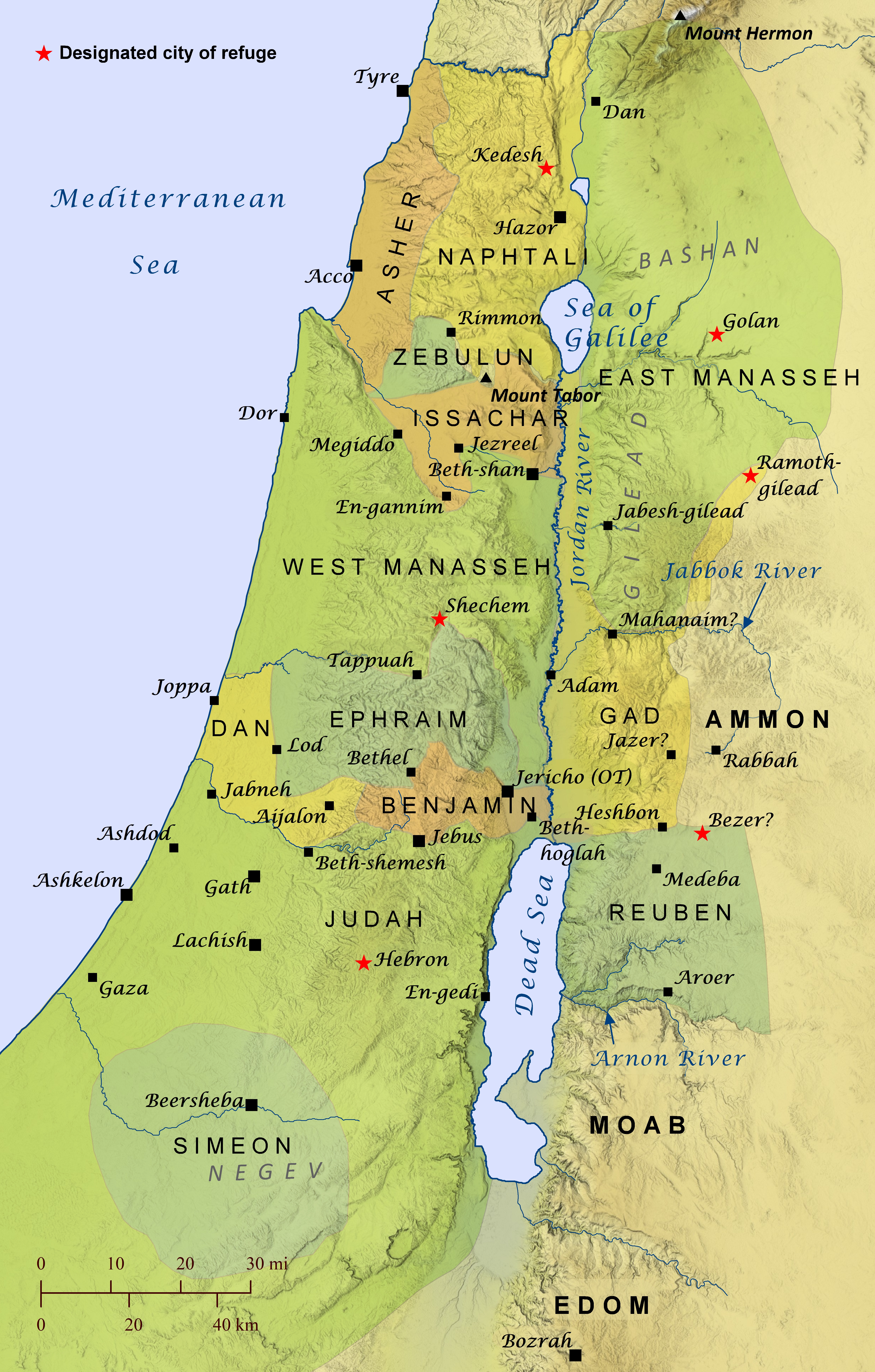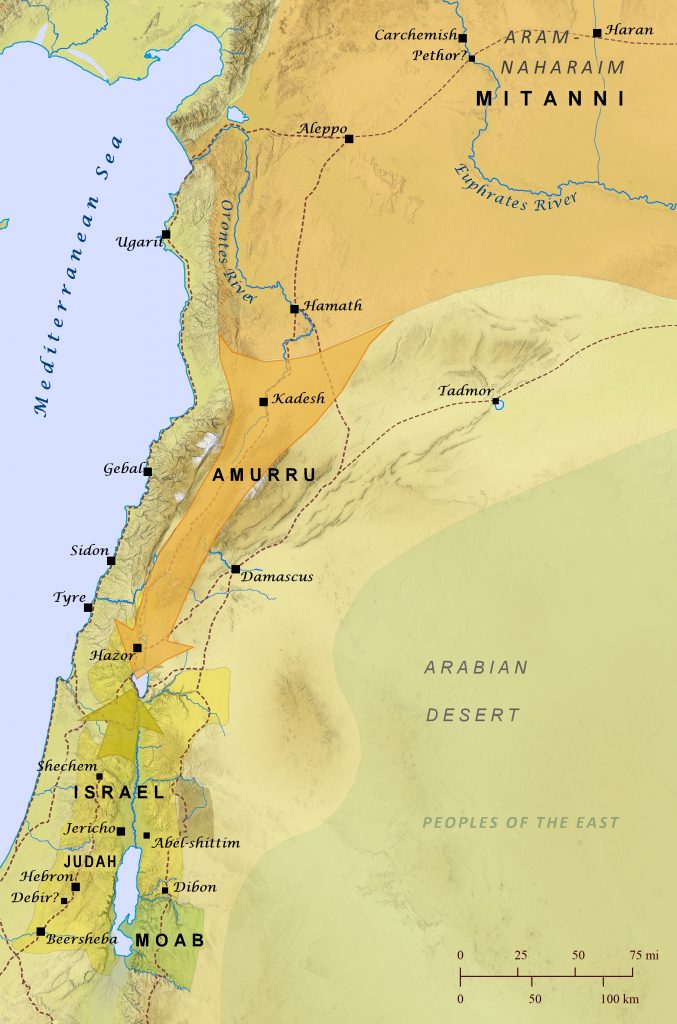Readers’ Version
Literal Version
13 Yahweh had instructed Yehoshua to give this block of land to Caleb (Yefunneh’s son): Kiriat-Arba (now called Hebron—Arba was Anak’s father).[ref] 14 Caleb captured the land from Anak’s three sons—Sheshai, Ahiman, and Talmai, 15 then from there, he battled against Debir (formerly called Kiriat-Sefer) 16 and he said, “I’ll give my daughter Aksah to marry to the man who attacks Kiriat-Sefer and captures it.” 17 Then Othniel (Kenaz’s son and Caleb’s brother) captured the city, so Caleb gave his daughter Aksah to him for a wife. 18 Then when she married him, she encouraged him to ask her father for a field, so she got down off her donkey and Caleb asked, “What are you up to?” 19 “Give me a blessing,” she answered, “because you’ve given me land in the Negev desert region, so now give me some springs as well for water.” So he gave her both the upper and the lower springs.
14 And_drove_out from_there Kālēⱱ DOM three the_sons_of the_ˊĀnāq DOM Shēshay and_DOM ʼAḩīman and_DOM Talmay those_born_of the_ˊĀnāq.
15 And_he/it_ascended from_there against the_inhabitants_of Dəⱱīr and_name_of Dəⱱīr to/for_formerly was_Qiryat Sepher.
16 And_ Kālēⱱ _he/it_said the_one_who he_will_attack DOM Qiryat Sepher and_captures_it and_give to_him/it DOM ˊAkşāh daughter_of_my to/for_(a)_woman.
17 And_captured_it ˊĀtənīʼēl the_son_of Qənaz the_brother_of Kālēⱱ and_gave to_him/it DOM ˊAkşāh daughter_of_his to/for_(a)_woman.
18 And_he/it_was in/on/at/with_came_she and_urged_him to_ask from father_of_her a_field and_dismounted from_under the_donkey and_he/it_said to/for_her/it Kālēⱱ what for_you.
19 And_she/it_said give to/for_me a_blessing if/because the_land_of the_Negeⱱ given_me and_you(ms)_will_give to_me springs_of water and_gave to/for_her/it DOM springs upper and_DOM springs lower.


